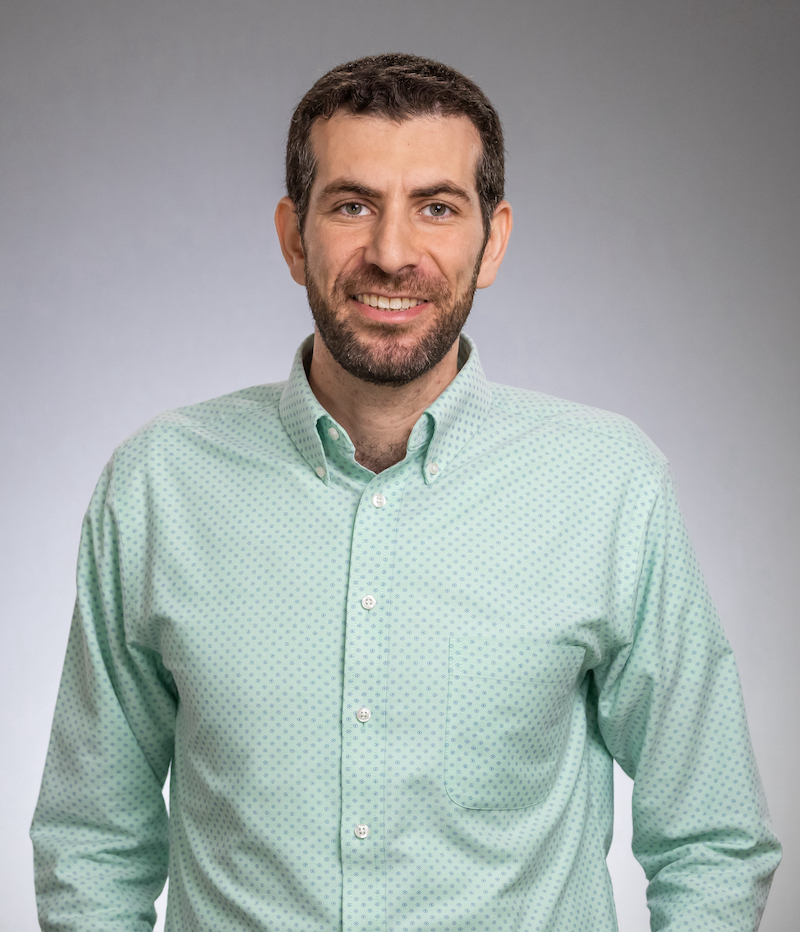Home | CV | Publications | Teaching | FAQ | CSEd Blog | Misc.
A. Check this page for a detailed answer!
A. I strongly prefer not to advise projects and theses outside the field of CS education. I can be of most help to you as an advisor if your work is in my field of expertise. Also, context-switching between CS education and other fields is difficult, given my overloaded schedule and my tendency to invest a lot of time in my student projects.
A. I certainly have some half-cooked ideas, but I won't leak them out to you easily! I prefer that you come up with your own idea and feel complete ownership over it.
I have previously been generous in proposing project ideas to students. However, several of my advisees who pursued ideas that I proposed grew too dependent on me and expected me to baby-walk them from one step to the next in the project. I would like to avoid this feeling of lack of ownership over the project.
Do not hesitate to come and discuss very preliminary project ideas with me. I will help you beef up project ideas that are too small, scale down project ideas that are too large. Discussions will also inevitably make me suggest some ideas and directions for you to think about. Even if you are stuck and can't think of any idea to discuss (but want to do something in CS education), I'd be very happy to help you think of new ideas!
A. Definitely.
Start early.
Do not wait until the semester begins to start thinking of an idea. It is too late then.Look at previous projects.
Ask your friends to give you access to their graduation project reports. Attend (if possible) project presentations. Ask the projects coordinator (or your potential advisor) to send you examples of good project reports. It is never too early to start doing this. The more projects you see the better your understanding becomes of what makes a good/bad project.Talk to many people.
When you have an idea, talk to your friends and potential advisor about it. If you do not have any idea, ask your professors if they are willing to propose and discuss potential project ideas with you. The more you talk to people about your ideas, the more mature they become and the more likely you might be able to generate new good ideas.Think of the areas you love most.
What are you most passionate about? Soccer? Art? Cars? You might be able to come up with a great idea in the areas you know best or that trigger you most!Focus on the idea not the tool.
I have heard many students say things like: I would like to implement something using [flutter, tensorflow, AWS, Kotlin, ...]
While it is good to learn new technology in your project, do not make it your starting point when thinking of a project idea. Instead, think of a good idea and then pick the right technology to implement it.Pick your partner early.
Your partner can be of great help when brainstorming. Also, picking your partner(s) late puts you at risk of not pursuing any of the ideas you thought of. You might get stuck with someone whose interests are not very similar to yours, which can greatly hamper your ability to agree on a great idea.
A. Several things.
Novelty.
Does your project provide a new solution for a problem? Does it improve an existing solution in any way? Does it address a problem rarely addressed? Where is your personal touch in the project?
You might learn a lot from implementing a mini C compiler from scratch or from re-implementing the Angry Birds game. However, a great final year project should not only be an opportunity to learn but also an opportunity to show that you can innovate using what you have learned.Complexity.
Did your project involve any of the following?- Research?
- The design, implementation or analysis of non-trivial algorithms or data structures?
- Rigorous validation, testing or evaluation of a system or model?
- The use of concepts from CS sub-fields (like encryption, operating systems, machine learning, etc.)?
- The use of theory or concepts from other fields (like economics, education, sociology, etc.)?
- The design and implementation of a large scale or non-trivial system that is made of several interacting components and/or APIs?
Implementation.
You might have a great novel and complex-enough idea. However, if it is only partially completed by the end of the year or if your implementation is full of bugs, it is difficult to call your project "great" or even "good".
Communication.
If your idea is novel, the project is complex-enough and your implementation is perfect but you fail to show that using a well-written report and a good presentation, do not be surprised if your instructors and peers do not appreciate the "greatness" of your project!
A. Your grade will be determined by a committee. However, your advisor's opinion of your project plays a strong role in determining your final grade. The following two tips might help regardless of who your advisor is:
Do your best. This is the single-most important piece of advise in this FAQ.
Do not procrastinate. Insist on having weekly meetings with your advisor and your teammates. Make sure to go to these meetings regardless of whether you have made progress or not. This will help you stay on track.
Cramming your work towards the end of the semester is a great recipe for submitting a not-well-polished project. It also prevents your advisor from having enough time to provide you with quality feedback and can lead to tensions in the team.
A. This depends a lot on whether your project is good or not! If you do a good project, then you shouldn't worry at all about the grade, regardless of who your advisor is. However, if you are looking for a good grade regardless of whether your project is good or not, then I am not your best option! I have a reputation for being harsh when grading mediocre projects!
A. I generally do not reject any request from my students for writing reference letters. However, the main question you should ask yourself is the following: Is Dr. Ibrahim Albluwi the best person to write a reference letter for me?
The best person to write a reference letter for you is someone who knows you very well and who can say good things about you! If you did not do well in my course, or if you did fine but I barely talked to you once or twice throughout the semester, then my reference letter will not have much in it in your favor. This actually might do more harm than good to your application. For example, if the only thing I write in my letter about you is that you are a nice person, or that you attended your classes regularly, then the person reading the letter would understand that I don't have any relevant positive thing to mention about you.
Therefore, if you think that I know you well and the things I know about you are positive, then please do reach out to me. I love helping my students get to the places they want to be at.
Here is a nice article to read on getting a great recommendation letter: https://matt.might.net/articles/how-to-recommendation-letter/
A. When you reach out to me requesting a recommendation letter, please include the following:
- A link to the place you are applying to (e.g. the job announcement page or the scholarship page).
- The application deadline.
Please do not press me in time. Writing a reference letter with a few days notice is quite difficult for me.
If I feel that I can write the letter within the deadline, I need from you to send me the following:
- Your name as you want it to appear in the letter.
- The name of the person or entity the letter must be addressed to.
- The exact name of the position or post you are applying to.
- Your CV or unofficial transcript + a summary of the things you did with me (e.g. a list of the courses you took with me including dates and grades, activities we organized together, etc.)
- Things you did with me that you are most proud of (e.g. a course, assignment or project you did very well at, great participation in class or on the course online forum, extra work you did, etc.)
- Anything I should keep in mind when writing the letter or anything you prefer that I emphasize.
It doesn't harm if you send me a reminder a few days before the deadline if you don't get a notification of submitting the letter, it would also be great if you let me know if you eventually get the job/scholarship/admission. It makes me happy to hear the good news!
A. A privately sent reference letter is more credible than an open letter. Therefore, most graduate schools and employers ask the referee to upload the reference letter privately, not the applicant. Hence, I generally prefer to keep the letters I write private, although I have in limited occasions shared the letters with my students. Therefore, if I don't mind sharing the letter with you, I will do so without you asking for it!
Note that many people have already written great articles on the topic. Here are a few examples:
- Getting a Computer Science PhD in the USA (by Shriram Krishnamurthi from Brown University)
- PhD Admissions Advice (by Casey Fiesler from CU Boulder)
- HOWTO: Get into grad school for science, engineering, math and computer science (by Matt Might from the University of Alabama)
- Advice for researchers and students (by Michael Ernst from the University of Washington)
- Some thoughts by Michael Langer from McGill University.
- Do you need a PhD? and How to apply to graduate school in computer science (by Nick Feamster from the University of Chicago)
The Egypt Scholars foundation has done a magnificent job compiling resources in Arabic that cover most of the things you might want to think about before going for grad school (including links for scholarships!). Check their FAQ, Wiki and Study Abroad Guide.
A. I am generally not active on Facebook. Yet, my (very passive) Facebook account is for connecting with friends, family and former students. If you are one of my current students, I'd be happy to add you to my LinkedIn account.
A. Sure, provided that I can recognize your name and face!
A. It makes my academic life much easier in many ways! Thanks a lot anyway for considering to bring me a gift! It is very nice of you.
A. Again, thanks a lot! While I like to socialize regularly with my students on-campus, I prefer to pay for my own drinks and food.
Last modified: . Site design adapted from Danqi Chen







